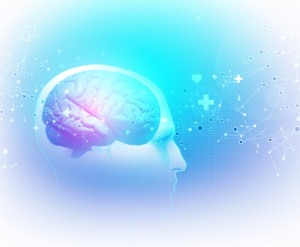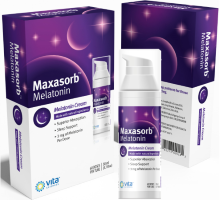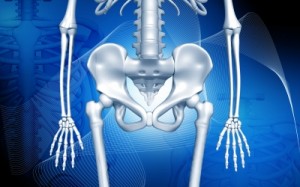 When you hear about brain health, you may think of lowering stress and anxiety. However, having a healthy brain also involves reducing risk of stroke as well as memory conditions like Alzheimer’s and dementia. A recent report has found that keeping your body healthy is vital to keeping your brain healthy.
When you hear about brain health, you may think of lowering stress and anxiety. However, having a healthy brain also involves reducing risk of stroke as well as memory conditions like Alzheimer’s and dementia. A recent report has found that keeping your body healthy is vital to keeping your brain healthy.
Having a healthy body involves more than just eating healthy and exercising. American Heart Association’s Life’s Simple 7 provides simple guidelines to help you develop a healthy body and healthy brain.
What are the Life’s Simple 7?
- Manage blood pressure– A healthy blood pressure is one where the systolic, or top number is 120 or less, and the diastolic, or bottom number, is 80 or less. The systolic pressure measures the pressure during contraction of your heart, while the diastolic measures the pressure in between heart beats. You should have your blood pressure checked at least once a year at your annual doctor’s visit. If you have hypertension, or a blood pressure of 140/90 or higher, you should see your doctor at least every 6 months to monitor your blood pressure.
- Control cholesterol– You should keep track of your cholesterol numbers at least once a year to stay healthy. This includes not only total cholesterol, but also your LDL, HDL, and triglycerides. If you already have high cholesterol or triglycerides, be sure to visit your healthcare provider every 6 months to keep track of your numbers.
- Keep blood sugar normal– When you visit your health care provider, be sure to take a look at your fasting blood glucose and HgA1C numbers. The fasting blood glucose will give you an idea of your current blood level of glucose. However, your HgA1C will give you a three month average of your blood glucose levels. Your HgA1C provides a long term picture of your blood glucose levels and is a better diagnostic tool. A prediabetes diagnosis would occur at an HgA1C of 5.7 to 6.4. If your HgA1C is 6.5 or higher, you may have diabetes. Be sure to get your numbers checked every year. Check your numbers more often if you have a family history or diagnosis of diabetes or prediabetes.
- Get physically active– The Department of Health and Human Services recommends 30 minutes of moderate exercise 5 days a week for optimal health. Moderate exercise can include walking, swimming, gardening, biking, or dancing. You can split this 30 minutes up into five or ten minutes here and there throughout the day.
- Eat a healthy diet– A healthy diet contains plenty of protein, healthy fats, and fiber-rich foods. Protein can come from lean meats, low-fat dairy products, and healthy plant-based proteins such as legumes, nuts, and seeds. Fiber-rich foods include fruits, vegetables, and whole grains like oats and quinoa. Also, healthy fats from plant-based oils like olive oil, nuts, seeds, avocado, and fatty fish can improve brain health and improve heart health.
- Lose extra weight– It is important to maintain a healthy weight to lower risk of chronic conditions. Obesity-related conditions like heart disease and diabetes can increase risk of brain health conditions. Therefore, losing weight can improve both heart and brain health.
- Don’t start smoking or quit– Smoking can constrict blood vessels and increase risk of hypertension. Therefore, if you don’t already smoke, don’t start. If you do smoke, contact smokefree.gov for resources on how to quit.
A recent report by the American Heart Association (AHA) has found that brain health is linked to healthy lifestyle factors. For example, increased blood pressure, blood glucose levels, and high cholesterol can increase risk of atherosclerosis, or narrowed blood vessels. Narrow blood vessels can restrict blood flow to the tissues and organs. This can lead to increased risk of stroke. Over time, multiple strokes or mini strokes can lead to cognitive impairment, or vascular dementia.
The risk factors for stroke as listed in the Life’s Simple 7, are the same for Alzheimer’s disease. The Life’s Simple 7 are risk factors that can be measured, modified, and monitored. Therefore, healthcare providers can use the knowledge gained from observing such factors to help better treat their patients. Scientists hope that such data can also lead to expanding research. They hope they may be able to detect genetic or brain markers that could lower the number of people who get dementia. Nearly 75 million people are expected to have dementia by the year 2030. However, this number may be lowered if steps are taken now to provide brain health prevention guidelines. Therefore, take steps to improve your lifestyle today to keep a healthy brain for life.
Other ways to create a healthy life include taking nutrient-rich supplements such as Livrio by Vita Sciences. Livrio contains natural compounds such as milk thistle that have been shown to support a healthy liver. This supplement helps cleanse and detoxify your liver, in turn providing you with improved energy, glowing skin, and overall well-being.
-written by Staci Gulbin, MS, MEd, RD, LDN
Sources:
American Heart Association (September 7, 2017) “Seven Steps to Keep Your Brain Healthy from Childhood to Old Age” http://newsroom.heart.org/news/seven-steps-to-keep-your-brain-healthy-from-childhood-to-old-age
 are? If you are a young adult, it is very likely that these questions have not been at the forefront of your mind when it comes to your health. A recent study showed that in 2013-2014, only half of the 6.7 million young adults from 18 to 39 years old were treated for high blood pressure. Meanwhile, only 40-percent got their blood pressure under control. However, blood pressure control is not only important for heart health, but for brain health as well. Recent studies have linked normal blood pressure levels with improved cognition in older adults.
are? If you are a young adult, it is very likely that these questions have not been at the forefront of your mind when it comes to your health. A recent study showed that in 2013-2014, only half of the 6.7 million young adults from 18 to 39 years old were treated for high blood pressure. Meanwhile, only 40-percent got their blood pressure under control. However, blood pressure control is not only important for heart health, but for brain health as well. Recent studies have linked normal blood pressure levels with improved cognition in older adults. predictions from coming true.
predictions from coming true. difficult. A recent study has found that low estrogen levels in some women may be linked to depression.
difficult. A recent study has found that low estrogen levels in some women may be linked to depression. with depression learn more about the condition. Also, this foundation helps support research efforts to find better treatments for those with depression.
with depression learn more about the condition. Also, this foundation helps support research efforts to find better treatments for those with depression.
 and keep a healthy weight for life.
and keep a healthy weight for life.



